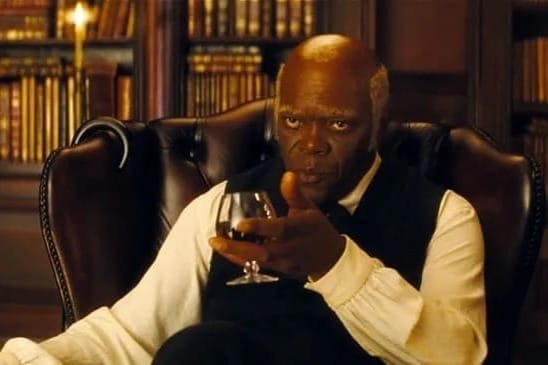In a unanimous decision, the Senate passed a resolution to honor the "life and legacy" of Charlie Kirk, an activist who many Black Americans considered a white supremacist. When the question arose as to whether someone who spent their political career spreading hateful, racist rhetoric would be worthy of national recognition, they blinked. While it's admirable that so many elected officials condemned political violence, they couldn't bring themselves to denounce racism. The text claimed Kirk lived with "conviction, courage, and compassion," overlooking the trail of hateful quotes he left behind like breadcrumbs. We're witnessing an effort to whitewash his legacy, to focus on him as a champion for free speech without holding Kirk accountable for the impact of his racist statements. Lavishing praise, senators claimed he was dedicated to the "constitution, civil discourse, and Biblical truth." However, those familiar with his rhetoric know their description is misleading.
The 14th Amendment, which guarantees equal protection under the law regardless of race, is part of the Constitution that Kirk seemed to oppose. He claimed passing the Civil Rights Act of 1964 was "a mistake." Instead of seeing this legislation as a much-needed remedy to Jim Crow, he dismissed it as irrelevant and inconsequential. Therefore, it is not accurate to say he was always devoted to the Constitution. Additionally, someone who once doubted Black people have the mental capacity to fly an airplane is not someone committed to civil discourse. Regarding Biblical truth, America is supposed to be a secular nation, where church and state are separate. A resolution praising someone's faith or relationship with any religion seems to undermine that fundamental separation. Despite Kirk portraying Black people and some groups as racially inferior, every senator signed the resolution honoring his "leadership."
While the Senate reached a unanimous decision, the Congressional Black Caucus in the House "condemned" the bipartisan resolution memorializing Kirk on Friday, arguing the measure gave credibility to his beliefs, perpetuating "racist, harmful, and fundamentally un-American" ideals. If only more of our representatives realized that when racism is embraced as a legitimate political ideology, Black people and other racial and ethnic minorities are unfairly targeted. Consider, for instance, HBCUs like Clark Atlanta University, Southern University, and Virginia State University received death threats after Kirk's assassination, prompting lockdowns as a safety precaution. Even though the suspect in custody is a young white man, some used the incident as an excuse to harass racial minorities as well as their political opponents. Society seems to expect Black people to have empathy for those who didn't see them as fully human. This is an unjust social arrangement, one on the left and right. It's concerning as it stretches the social contract to the breaking point. Some hope to follow in Kirk's footsteps and call on their political opponents to "debate" on college campuses. While discourse is needed, we should keep in mind that no one has the obligation to engage with individuals who endorse the mythology of white supremacy.
No one should expect Black people to honor white supremacists, or Jewish people to honor the memory of fallen Nazis, or Indigenous people to honor European colonizers. Yet, here we are, in the 21st century, where many White Americans hold this unrealistic social expectation of racial and ethnic minorities. They're trying to bully Black people and anyone who opposed Kirk's rhetoric into mourning for someone they don't admire. One report suggested over a hundred people faced consequences for their comments regarding Charlie Kirk. One "analysis shows at least 50 educators, including high school teachers and college professors, have faced investigations or repercussions for their remarks amidst the wave of intense scrutiny of social media channels by Kirk's supporters." While the First Amendment guarantees citizens freedom of speech, the current administration has applied pressure on companies, organizations, and individuals to limit what people can say and punish those who do not comply with the status quo.
At a Texas University, one Black student reenacted Charlie Kirk's death in front of a crowd of students. Governor Greg Abbott commented on a viral video that the individual should be expelled immediately. To his credit, the student apologized, saying this was done in the "heat of the moment." However, in this political climate, authority figures will likely make an example out of him to deter others. While mocking someone's death is unkind, there is a double standard applied to those who mock Black homicide victims. White people have posted horrific memes mocking George Floyd, Trayvon Martin, Breonna Taylor, Alton Sterling, Sandra Bland, Tamir Rice, and others. They made light of the suffering of the black community. Yet, Abbott and other conservative politicians failed to condemn those mocking Black victims of police brutality and racial hate crimes. Only now, that the victim is a young white conservative, is he outraged by the callous disregard for human life. Why aren't white people socially pressured to show respect for Black people, even victims of violent hate crimes? Indeed, many refused to say the simple phrase, "Black Lives Matter."

It's bad enough that many of our elected officials do not see racism as disqualifying someone from praise, but citizens are also facing immense social pressure to honor Kirk. Indeed, just being Black is enough for them to assume they know how you feel and become antagonistic. Reports suggest a group of MAGA supporters, young white men, marched onto Tennessee State University, a historically Black college, this week, holding signs that read "DEI should be illegal," and "Deport all illegals." Given that conservatives have used the acronym DEI, which stands for diversity, equity, and inclusion, as a slur suggesting Black people are not qualified to fill the same positions as white people, this was not a good-faith debate. The truth is, many Black people often feel they have to work twice as hard to reach the same career milestones as their white counterparts. And yet, some white people assume they are less deserving of leadership roles. How ironic that a large group of white people accused Black college students of not earning their place in society when they're actively enrolled in classes that provide them with the chance to develop marketable skills. Their underlying premise, that Black people are undeserving of equal access to opportunities, is undermined by their hard work. Not that racists bend to logic, but it's disingenuous to accuse college students of looking for a handout when they're clearly willing to put in the work.
The selective empathy in this country is hard to ignore. Last June, the White House, under Donald Trump's authority, claimed Jewish students faced discrimination at Harvard due to pro-Palestinian protests. However, the 47th president did not show the same level of concern for racial hate crimes and harassment that Black students face, or Palestinian students, for that matter. There is something wrong with a society that only recognizes tragedy when white people are victims; it neglects its Black and marginalized citizens. Despite seeking a confrontation with Black students, some intruders claimed they were victims after campus security escorted them off campus. However, since some HBCUs received death threats, this was a reasonable precaution. Some white people believe Black people are obligated to debate them. But we can say, for the sake of our human dignity, that we won't debate individuals who buy into the mythology of white supremacy.
Black people are often expected to honor white supremacists. And this isn't something we can dismiss as only historical. For instance, Alex O'Keefe, a writer known for his work on "The Bear," a FX show, endured an ordeal that could have easily been clipped from a 1950s or 60s newspaper article. A white woman complained that the 31-year-old Black man didn't want to change the way he was sitting on a train at Fordham Metro-North station, in the Bronx. His feet were allegedly sprawled out on the seat beside him, which bothered her. Authorities arrested him as a result. That's right, officers placed a Black man in handcuffs for refusing to obey a direct order from a white woman. This is eerily reminiscent of efforts to police Black people's behaviors during Jim Crow. While the 14th Amendment established the Equal Protection Clause, which guaranteed Black people were afforded the same rights and legal protections as white people, many southern states established black codes, treating them as second-class citizens, rather than their equals.

Far too often, American society elevates problematic figures to the status of heroes. The Nathan Bedford Forrest State Park and Camp Forest, a World War II training site in Tennessee, are both named after Confederate General Nathan Bedford Forrest, the first Grand Wizard of the Ku Klux Klan. This "Christian" organization played a significant role in terrorizing black communities by lynching Black people and destroying property. Members often engaged in brutal campaigns of violence without facing consequences and threatened Black people who registered to vote. White supremacists were instrumental in rolling back the progress achieved during the Reconstruction Era. Henry Lewis Benning, another Confederate general and proslavery politician, believed Black people were not fully human and warned about the "horror of black governors, black legislatures, black juries, black everything." In no uncertain terms, he was a racist man. And yet, there's a fort in Georgia named after him. You can tell a lot about a society by the individuals and behaviors that are celebrated.
In my opinion, someone who promotes the myth of white supremacy is unworthy of national praise, unless we're willing to concede to the notion that America is perpetually racist. While some adopted the political slogan, "this is not who we are," to promote a shared set of values, the truth is that if we examine America's history leading up to this moment, the character of this country should be called into question. From the displacement of Indigenous people, the enslavement, segregation, and discrimination endured by Black people, to the wrongful internment of Japanese people, and the family separation and abuse suffered by immigrants of color, there are certainly a lot of injustices that mar the nation's reputation. Rather than denying this uncomfortable history, we should reckon with it in the best way we can, as people limited by space, time, and resources.
When someone believes you are inferior simply because of your race or color, you have no obligation to debate them or hear them out. And you certainly don't have to honor their memory or consider them heroic. However, that doesn't change the fact that this social expectation persists in America. We still have the right to speak truth to power, to say that people who promote the myth of white supremacy are unworthy of national praise. And we shouldn't give that up lightly.
This post originally appeared on Medium and is edited and republished with author's permission. Read more of Allison Gaines' work on Medium.
=


